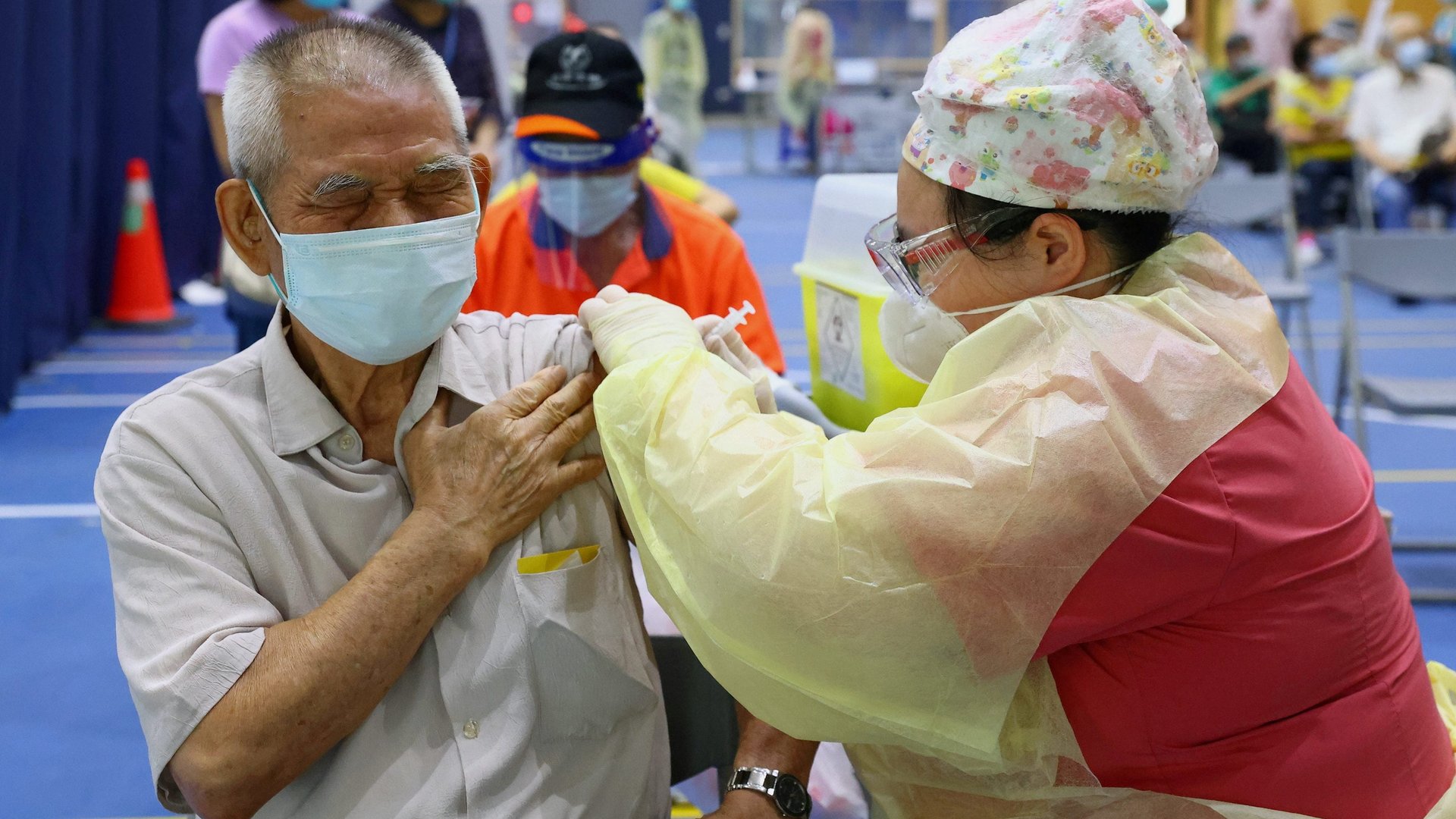Why Taiwan’s tech giants had to step in to source vaccines for the government
Many governments across the world have had difficulty procuring vaccines. But perhaps none has had so difficult a time as Taiwan, thanks to its diplomatic limbo dating back to China’s civil war.


Many governments across the world have had difficulty procuring vaccines. But perhaps none has had so difficult a time as Taiwan, thanks to its diplomatic limbo dating back to China’s civil war.
Back in February, Taiwan’s health minister Chen Shih-chung hinted that a deal to acquire 5 million doses of the Pfizer/BioNTech vaccine had fallen through because of “outside interference.” In May, he claimed it fell apart over wording in a press release that used the word “country” in reference to Taiwan.
That, of course, is a red line for Beijing.
The difficulty of dealmaking with Taiwan
According to Beijing’s “One China” doctrine, there is no “China” but the People’s Republic of China, and Taiwan has “always” been a part of it. This claim stems from China’s lengthy civil war between the Communists and the Kuomintang, or Nationalists, in the early part of the 20th century. It ended with the Kuomintang defeated and retreating to the island of Taiwan, while a Communist China was established on the mainland in 1949. (The Communist Party has never ruled in Taiwan.)
In recent years, after the independence-leaning Democratic People’s Party led by Tsai Ing-wen came to power in Taiwan, China has put more energy into making countries, companies, and organizations fall in line with this core tenet. That means that in the midst of a global pandemic, Taiwan is excluded from organizations like the World Health Organization, or attending its annual meeting. Even the US, a staunch Taiwan ally, doesn’t officially recognize Taiwan as a country, though it does back its right to have an international presence.
While Taiwan has ordered vaccine doses from US firm Moderna, and also received vaccine donations, it’s been harder to reach a deal with Germany’s BioNTech, which co-produced a vaccine with Pfizer. BioNTech had already agree to work with China’s Shanghai Fosun Pharmaceutical as a strategic partner for distributing the vaccine in “greater China,” a geographical designation that skirts the geopolitical issues to include Taiwan. The two companies have also set up a joint venture to produce vaccine doses for China.
For its part, Taiwan has stoutly refused to accept vaccines made in China despite its shortage—and even if the government had accepted them, it’s unclear that citizens would have lined up to take them.
Taiwan’s tech companies find a workaround
As a new Covid-19 outbreak spread across the island starting in April, it appears that pressure built up behind-the-scenes to break this impasse. This is where contract manufacturing giant Foxconn and semiconductor titan TSMC, both with strong networks in China, come in.
In a $350 million deal finally announced today (July 12), Foxconn, TSMC, a charity controlled by Foxconn founder Terry Guo, and Swiss-owned Zuellig Pharma, entered into an agreement with Fosun Industrial, a unit of Fosun Pharma, to buy 10 million vaccine doses. The doses that will be shipped to Taiwan, perhaps as soon as September, will come from Germany. Zuellig Pharma is acting as the buyer on behalf of the tech firms. After the tech giants receive their doses they will then hand them over, under the auspices of a donation contract, to Taiwan’s Centers for Disease Control.
Wang Jianmin, an expert on China-Taiwan ties at Minnan Normal University, told China’s Global Times tabloid that the agreement probably wouldn’t have happened without the efforts of private influential companies on either side to bypass the political hurdles.
With this arrangement, everyone gets what they want, sort of.